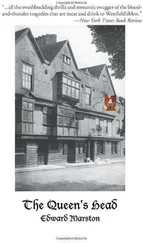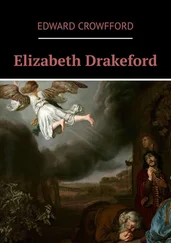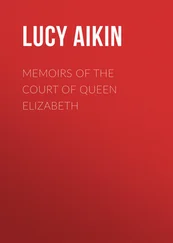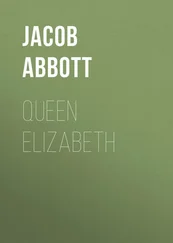Edward Beesly - Queen Elizabeth
Здесь есть возможность читать онлайн «Edward Beesly - Queen Elizabeth» — ознакомительный отрывок электронной книги совершенно бесплатно, а после прочтения отрывка купить полную версию. В некоторых случаях можно слушать аудио, скачать через торрент в формате fb2 и присутствует краткое содержание. Жанр: foreign_antique, foreign_prose, на английском языке. Описание произведения, (предисловие) а так же отзывы посетителей доступны на портале библиотеки ЛибКат.
- Название:Queen Elizabeth
- Автор:
- Жанр:
- Год:неизвестен
- ISBN:нет данных
- Рейтинг книги:5 / 5. Голосов: 1
-
Избранное:Добавить в избранное
- Отзывы:
-
Ваша оценка:
- 100
- 1
- 2
- 3
- 4
- 5
Queen Elizabeth: краткое содержание, описание и аннотация
Предлагаем к чтению аннотацию, описание, краткое содержание или предисловие (зависит от того, что написал сам автор книги «Queen Elizabeth»). Если вы не нашли необходимую информацию о книге — напишите в комментариях, мы постараемся отыскать её.
Queen Elizabeth — читать онлайн ознакомительный отрывок
Ниже представлен текст книги, разбитый по страницам. Система сохранения места последней прочитанной страницы, позволяет с удобством читать онлайн бесплатно книгу «Queen Elizabeth», без необходимости каждый раз заново искать на чём Вы остановились. Поставьте закладку, и сможете в любой момент перейти на страницу, на которой закончили чтение.
Интервал:
Закладка:
The wisest heads in Scotland had long seen the advantage of uniting their country to England by marriage. The blundering and bullying policy of the Protector Somerset had driven the Scotch to renew their ancient alliance with France. But the attempts of the Regent Mary of Guise to increase French influence, and to establish a small standing army, in order at once to strengthen her authority, and to serve the designs of Henry II. against England, had again made the French connection unpopular, and caused a corresponding revival of friendly feeling towards England.
Nowhere was the Church so wealthy, relatively to the other estates, as in Scotland. It was supposed to possess half the property of the country. Nowhere were the clergy so immoral. Nowhere was superstition so gross. But the doctrines of the Reformation were spreading among the common people, and in 1557 some of the nobles, hungering for the wealth of the Church, put themselves at the head of the Protestant movement. They were known as the “Lords of the Congregation.”
The Scotch Reformation began not from the Government, as in England, but from the people. Hence, while change of supremacy was the main question in England, change of doctrine and worship took the lead in Scotland. The two parties were about equal in numbers, the Protestants being strongest in the Lowlands. But, with the exception of the murder of Beaton in 1546, there had, as yet, been no appeal to force, nor any attempt to procure a public change of religion. The accession of Elizabeth emboldened the Protestants. At Perth they took possession of the churches and burnt a monastery. On the other hand, after the peace of Câteau Cambresis, Henry II. directed the Regent to put down Protestantism, both in pursuance of the agreement with Philip, and in order to prepare for the Franco-Scottish invasion of England. The result was that the Protestants rose in open rebellion (June 1559). The Lords of the Congregation occupied Perth, Stirling, and Edinburgh. All over the Lowlands abbeys were wrecked, monks harried, churches cleared of images, the Mass abolished, and King Edward’s service established in its place. In England the various changes of religion in the last thirty years had always been effected legally by King and Parliament. In Scotland the Catholic Church was overthrown by a simultaneous popular outbreak. The catastrophe came later than in England; but popular feeling was more prepared for it; and what was now cast down was never set up again.
It seemed at first as if the Regent and her handful of regular troops, commanded by d’Oysel, would be swept away. But d’Oysel had fortified Leith, and was even able to take the field. A French army was expected. The tumultuary forces of the needy Scotch nobles could not be kept together long, and it became clear that, unless supported by Elizabeth, the rebellion would be crushed as soon as the French reinforcements should arrive, if not sooner.
Thus early did Elizabeth find herself confronted by the Scottish difficulty, which was to cause her so much anxiety throughout the greater part of her reign. The problem, though varying in minor details, was always essentially the same. There was a Protestant faction looking for support to England, and a Catholic faction looking to France. Two or three of the Protestant leaders – Moray, Glencairn, Kirkaldy – did really care something about a religious reformation. The rest thought more of getting hold of Church lands and pursuing old family feuds. In the experience of Elizabeth, they were a needy, greedy, treacherous crew, always sponging on her treasury, and giving her very little service in return for her money. Besides, the whole Scotch nation was so touchy in its patriotism, so jealous of foreign interference, that foreign soldiers present on its soil were sure to be regarded with an evil eye, no matter for what purpose they had come, or by whom they had been invited.
The Lords of the Congregation invoked the protection of Elizabeth. They suggested that she should marry the Earl of Arran, and that he and she should be King and Queen of Great Britain. Arran was the eldest son of the Duke of Chatelherault, who, Mary being as yet childless, was heir-presumptive to the Scottish crown. There were many reasons why Elizabeth should decline interference. It was throwing down the glove to France. Interference in Scotland had always been disastrous. It might drive the English Catholics to despair, as cutting off the hope of Mary’s succession to the English crown. To make a Protestant match would irritate Philip. He might invade England to forestall the French. Almost all her Council – even Bacon – advised her to leave Scotland alone, marry the Archduke Charles, and trust to the Spanish alliance for the defence of England.
These were serious considerations; and to them was to be joined another which with Elizabeth always had great weight – more, naturally, than it had with any of her advisers. She shrank from doing anything which might have the practical effect of weakening the common cause of monarchs. She felt instinctively that with Protestants reverence for the religious basis of kingship must tend to become weaker than with Catholics. She did not desire to encourage this tendency or to familiarise her own subjects with it. Knox’s First Blast of the Trumpet against the Monstrous Regimen of Women had been directed against Mary. The Blasts that were to follow had been dropped; but the first could not be treated as unblown. And the arrogant preacher did not mend matters by writing to Elizabeth that she was to consider her case as an exception “contrary to nature,” allowed by God “for the comfort of His kirk,” but that if she based her title on her birth or on law, “her felicity would be short.”
Nevertheless Elizabeth adopted the bolder course. The Lords of the Congregation were assured that England would not see them crushed by French arms. A small supply of money was sent to them. As to the marriage with Arran, no positive answer was given; but he was sent for to be looked at. When he came, he was found to be even a poorer creature than his father; at times, indeed, not quite right in his mind. It was hard upon the Hamiltons, among whom were so many able and daring men, that, with the crown almost in their grasp, their chiefs should be such incapables. To Elizabeth it was no doubt a relief to find that Arran was an impossible husband.
In the meantime 2000 French had arrived, and the Lords were urgent in their demands for help. But Elizabeth determined, and rightly, that they must do their own work if they could. She was willing to give them such pecuniary help as was necessary. But the demand for troops was unreasonable. Fighting men abounded in Scotland. Why should English troops be sent to do their fighting for them, with the certainty of earning black looks rather than thanks? If a large army was despatched from France, she would attack it with her fleet. If it landed, she would send an English army. But if the Lords of the Congregation did not beat the handful of Frenchmen at Leith it must be because they were either weak or treacherous. In either case Elizabeth might have to give up the policy she preferred, leave Scotland alone, and fall back upon an alliance with Philip.
In order therefore to preserve this second string to her bow, and to let the Scotch Anglophiles see that she possessed it, she reopened negotiations for the Austrian marriage. Charles, in his turn, was invited to come and be looked at. Much as she disliked the idea of marriage, she knew that political reasons might make it necessary. But, come what would, she would never marry a man who was not to her fancy as a man. She would take no one on the strength of his picture. She had heard that Charles was not over-wise, and that he had an extraordinarily big head, “bigger than the Earl of Bedford’s.”
Читать дальшеИнтервал:
Закладка:
Похожие книги на «Queen Elizabeth»
Представляем Вашему вниманию похожие книги на «Queen Elizabeth» списком для выбора. Мы отобрали схожую по названию и смыслу литературу в надежде предоставить читателям больше вариантов отыскать новые, интересные, ещё непрочитанные произведения.
Обсуждение, отзывы о книге «Queen Elizabeth» и просто собственные мнения читателей. Оставьте ваши комментарии, напишите, что Вы думаете о произведении, его смысле или главных героях. Укажите что конкретно понравилось, а что нет, и почему Вы так считаете.












